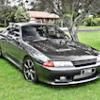R32 Engine Splutter
Announcements
-
Similar Content
-
Latest Posts
-
By Dose Pipe Sutututu · Posted
I like they don't raise their hands into the air when they shift their sequential boxes, seems to be a thing here in Australia lol... -
By Murray_Calavera · Posted
I'm not normally one for posting random videos, but I thought we'd all appreciate the honesty about how broken our cars tend to be lol. Genuine skyline life here. -
New CAS just turned up from NZ Wiring. Looks like a nice bit of gear. So, yeah. Triggered, bro. Realised I may as well do the cam belt while mucking about with it so will order one of them.
-
Even more fun, leave all the ADAS stuff plugged in, but in different locations, hopefully avoid any codes! And honestly, all these new cars with their weird electronics. Pull all the electronics out Duncan, and just shove an aftermarket ECU and if needed a trans controller in, along with a PDM. Make it run basic but race car styled!
-
To follow up a question from earlier too since I had the front bar off again (fking!) This is what is between the bumper and the drivers side wheel And this is the navigator side, only one thing but its a biggy! So basically....no putting coolers in the wheel arches without a lot of moving other stuff. Assuming I move to properly race prepping this car I'll take that job on and see how the computers respond to removing a whole bunch of ADAS modules
-







Recommended Posts
Create an account or sign in to comment
You need to be a member in order to leave a comment
Create an account
Sign up for a new account in our community. It's easy!
Register a new accountSign in
Already have an account? Sign in here.
Sign In Now